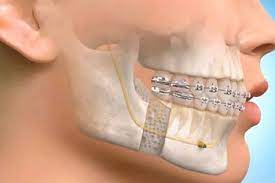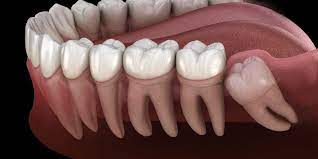Oral and Maxillofacial Surgery Chat, Oral Surgeon Blog
Oral surgery can be the difference between life and death, or comfort and constant pain. When dental issues get bad enough for oral surgery, there are usually many complications as a result. That’s why it’s so important to regularly visit your dentist. But when you do need oral surgery, it’s vital you know what you’re getting into. That means getting the right expertise. In this local oral surgery blog, we will be discussing how oral surgeons can help you in treating oral cancer and to help in extracting fully impacted wisdom teeth.
If you are a young adult in your twenties or thirties, you may have had some dental services at your local oral surgeon's office. Many people end up extracting one or more of their wisdom teeth (third molars). Many times, the wisdom tooth extraction treatment is done at your local oral surgery office. Oral surgeons and oral surgery offices provide many important facial trauma services, various types of orthognathic surgery treatments, oral cancer treatment, and third-molar extraction services.
Through DentalChat you can live dentists chat with local dentists to ask dentistry questions and get help with your dental situation directly from home. This means you can learn all about oral surgery options and results from a trained professional now!
Many people have gone to an oral surgeon to have wisdom teeth (third molars) extracted. A common oral surgery question is, whether an oral surgeon is a physician or a dentist? Most oral surgeons first graduate from dental school and then do an oral surgery residency in the United States. A small number of oral surgeons do go to medical school and then do an oral surgery residency. We will discuss this further in this dental article.
Oral Surgeon Information:
Oral surgeons are oral and maxillofacial surgery specialists. Oral surgeons provide important dental and medical services to patients with facial trauma and more. Many times oral surgeons are referred to dental patients by general dentists for a wide range of dental services. This can include impacted wisdom teeth extractions (third molar extractions) or providing patients with oral cancer treatment. Becoming an oral surgeon is not easy. Generally, an additional 4 years of training or more is required. The residency is usually done in a hospital setting, as oral surgeons specialize in dental emergencies such as facial trauma. Since oral surgeons may be required to perform complicated facial surgeries due to trauma, some oral surgeons come from a medical school background and not dental school. Most oral surgeons though, first graduate from dental school - and then do their 4 years or more of postgraduate oral surgery training. In this Local Oral Surgeon Dentistry Blog, we will be discussing oral and maxillofacial surgery specialty - dental specialists known as oral surgeons.
- Dental Specialty Blogging about Oral Surgeons:
- Oral and Maxillofacial Surgery Chat, Oral Surgeon Blog:
Oral and maxillofacial surgery (OMS) is recognized by the American Dental Association as being a dental specialty of Oral and Maxillofacial Surgery - Oral Surgeons are a specialty of dentistry that includes the diagnosis, surgical and adjunctive treatment of diseases, injuries, and facial defects involving both the functional and esthetic aspects of the hard and soft tissues of the oral and maxillofacial region of the body. Oral surgeons are many times used commonly by many teenagers and young adults to extract impacted wisdom teeth.
Orthognathic Surgery Information: We get asked many Orthognathic Surgery Questions - a common Orthognathic Surgery Question is about people asking about “fixing” their protruding jaw with ortho jaw surgery.
Common Oral Surgeon Question?
We get asked many oral surgeon questions online at DentalChat. One common oral surgeon question we get asked is, are oral surgeons a dentist or are they medical doctors? Most oral surgeons are dentists and then do advanced specialty training after dental school. Though, there are some MD oral surgeons - who medical school and then do advanced oral surgery specialty training.
Common Wisdom Tooth Question?
There are many common wisdom teeth questions online we get asked, including about wisdom tooth pain and wisdom tooth extraction questions. Oral surgery questions include many, with one particular one being --- Does my oral surgeon need to put me to sleep when extracting my wisdom tooth? The answer is that it is not a necessity. Many times can get a tooth extracted with local anesthesia, though by being placed into what is called as placing the patient in a twilight state, so they are less conscious as to when the procedure is going on.
Oral and maxillofacial surgeons are used by patients for severe face & teeth trauma after accidents. They spend several years after becoming a general dentist continuing their dental study to become an oral surgeon. They train and do their residency many times in the ER and train alongside the MD staff. Many times they are abbreviated as OMS or OMSF. An oral surgeon can extract impacted wisdom teeth, place dental implants and help treat a wide variety of dental issues such as cancer in the mouth, etc.
What Do Oral Surgeons Do?
Here are some treatments an oral surgeon can provide to their patients:
-
Maxillofacial Trauma due to accidents
-
Pathologic lesions of the head and neck
-
TMD / TMJ Temporomandibular joint surgery
-
Correction of dentofacial deformities
-
Oral Maxillofacial Reconstruction
-
Dentoalveolar surgery
-
Dental Implants Placement
-
Ambulatory general anesthesia and deep sedation
-
Cleft lip and palate repair
-
Facial aesthetic surgery
-
Management of odontogenic infections
-
Management of facial pain
Cleft Lip Surgery Information Blog:
Many dental problems can arise for children with a cleft lip. Children with a cleft lip and palate may have dental problems that may include missing teeth, having small teeth, having extra teeth (called supernumerary), or their teeth may be out of position. With a cleft lip, they may also have a defect in the gums or alveolar ridge (the bone that supports the teeth). These defects may rotate permanent teeth or prevent permanent teeth from coming in the right way. That is why, oral surgeons look to surgically treat cleft lips as earliest as possible in children, to minimize these dental problems.
Oral Cancer Treatment Blogging:
Oral cancer treatment is one of the important services that oral surgeons provide to patients. There are a variety of oral cancers that affects many people at various stages of their life.
Oral surgeons can help diagnose and treat oral cancer patients. Oral Surgeons can help treat oral cancer. Oral cancer, like other forms of cancer, is best detected and treated as early as possible.
Local Oral Surgeons Information Blog:
Oral and Maxillofacial Surgery Doctors (OMS) or oral surgeons receive vast amounts of training in dealing with facial trauma & treating people who end up with facial trauma from say a bad car accident.
Since most oral surgeons are dentists by training, they understand very well what will need to be done to restore the possible teeth damage done because of a severe accident.
TMJ Treatment Information Blog:
Properly diagnosing and treating TMJ is not easy. TMJ is a joint that attaches or connects the jaw to the skull. By doing so, it provides an important function in chewing and eating. TMJ pain can be mild to severe. Sometimes patients will state that they have this annoying clicking sound when they open their mouths. TMJ pain may be caused by a wide variety of reasons. This TMJ pain may be caused by such factors as arthritis, stress, genetics, grinding teeth while sleeping, or injury to the jaw. First dentists and oral surgeons will try to treat TMJ non-surgically. If that does not work, an oral surgeon may recommend having an arthroscopy or arthroscopic surgery done in the TMJ area. Here is an Online TMJ Dental Chat Blog link if you want more dental information about this topic. We do TMJ Treatment Chat and Answer TMJ Questions Online at DentalChat.Have a TMJ Dental Question, can post your dentist question online here at DentalChat.com. Treatment may include relaxation exercises, anti-inflammatory medication, TMJ dental appliances, and TMJ surgical procedures.
Oral Surgeon Chat:
Oral surgeons are dental specialists that can help people with many facial and oral surgery issues. Whether it is TMJ surgery, oral cancer treatment, or extraction of impacted wisdom teeth - oral surgeons provide a wide array of useful dental services to their patients. Many oral surgeons work hand in hand with their general dentist counterparts. The oral surgeon may place the dental implant, and the general dentist will make the dental implant crown for the patient. Most general dentists understand the importance of working with an oral surgeon, to provide complete dental care services to their patients. The general dentist may detect oral cancer and refer the patient to an oral surgeon, for oral cancer treatment. Common oral cancer question - How do I know if I have oral cancer? Going to your local oral surgeon is a great place to diagnose if you have oral cancer and to treat your oral cancer. Diagnosing oral cancer
Local Oral Surgery Treatment Chat:
In summary, Oral and Maxillofacial Surgery Doctors (OMS) provide a variety of oral and facial treatments for young and old patients. Oral surgeons can help people that have suffered from lip and mouth trauma, from kids with a cleft lip to helping extract impacted wisdom teeth. For traumatic facial injuries, oral surgeons are experts in trying to repair facial damage from a car accident or sports accident, for instance. Oral surgeons also can help in diagnosing and treating oral cancer. Lastly, oral surgeons are commonly used by many teenagers and adults to extract wisdom teeth.
Where Can I Ask Oral Surgeons Questions?
Are you looking to grow your dental practice with patients that really need dental care? Great time for dentists to sign up and participate with DentalChat. We have many people looking for dental answers to their dental issues. We at DentalChat.com are looking to help patients Find Local Dentists in local areas where they are having dental care issues. We cover a wide variety of dental subjects on Dental Chat. We ask our users for their input on dental subjects they like us to discuss.
Best Teledental Services, Local TeleDentistry Consult Online:
We at DentalChat offer the best advice with Local Teledental Services Consult Online, Teledentistry Procedure, and Dental Veneers Question Chat with us. You can Find Dental Hygiene Help and more at DentalChat. Local Dental Practices can Add Dentist ChatBot to their Dental Website and Add TeleDentistry Consulting to their Dental Practice with us. All dental offices should use a powerful Dental ChatBot to engage patients. Many people are asking local dental implant questions - use TeleDentistry to answer a local dental implant question online.
Overview
In this local oral surgeon chat, we discussed how oral surgeons can provide dental implant placement services to their patients in this dental article. We welcome guest local dental bloggers that want to contribute dental articles with useful dental information that would interest our users. In this dental article, we covered various local oral surgery topics. Local Oral Surgeons Blog, Oral Surgery Blogging, Live Dental Implants Question Chat, Oral Cancer Treatment Chat, TMJ Treatment Blogging, Online Cleft Lip Treatment Info Blog, and Maxillofacial Surgery Discussion Online.
If you’d like to learn more about any of these topics or have a Local Oral Surgeon Treatment Question to Ask Dentists - we try to help by providing dental information. Chat with Live Dentists and Use TeleDentistry Consulting services with us. You as the patient should always do your own research and in the end, get a thorough dental exam & dental X-rays to see what are the best treatment options. DentalChat is a great resource for dental information, which may help in your overall dental knowledge?


